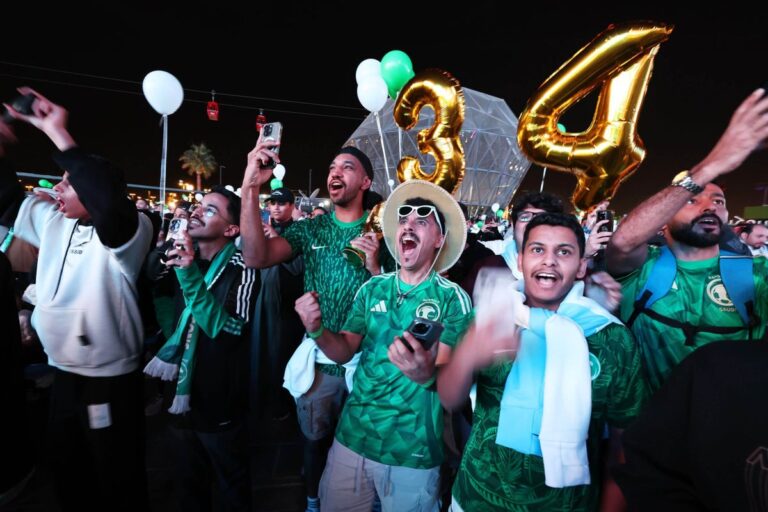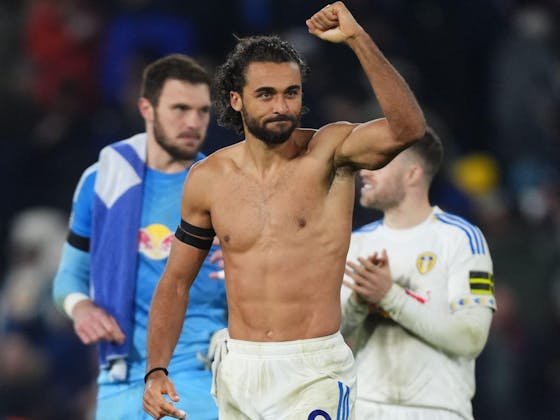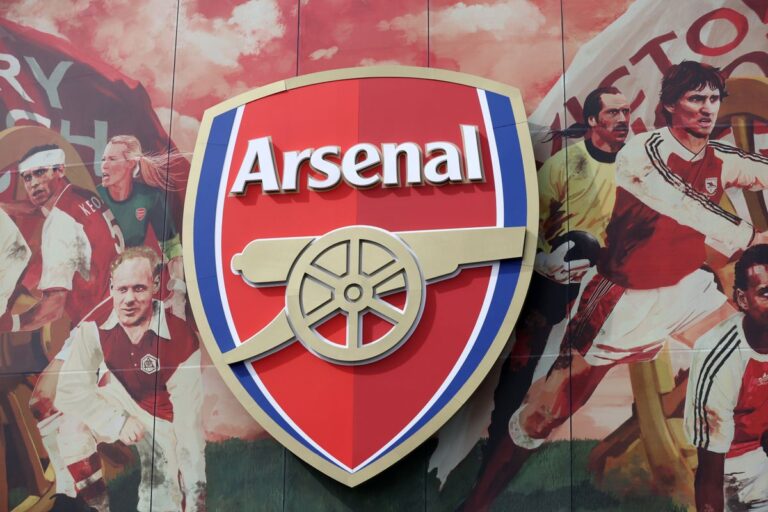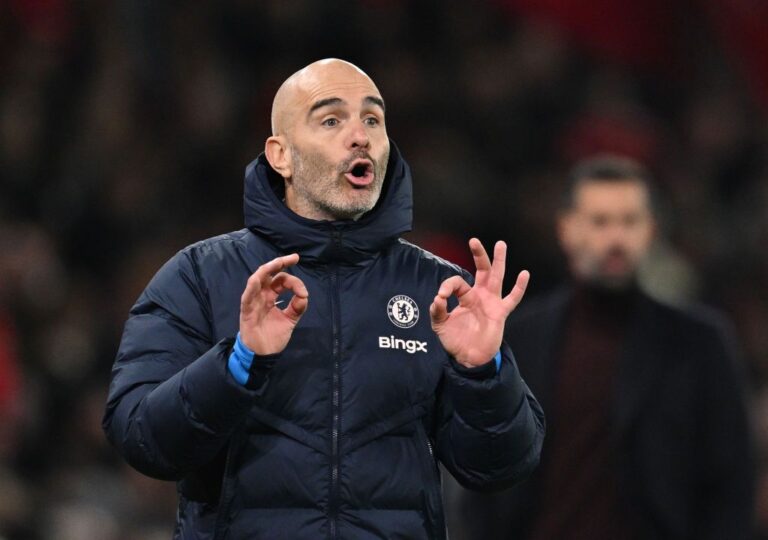
Football’s Marketplace: When Will Saudi Tournaments Fit into an Overloaded Schedule?
In the words of Noddy Holder, the new sponsor of Bridgnorth Spartans Under-7s Reds and the frontman of the iconic glam rock band Slade, “It’s Christmas”… and that signifies it's time for presents.
With only four shopping days remaining until the festive occasion, it was perfectly timed when FIFA proclaimed on Thursday that tickets for next summer’s Club World Cup are now available for purchase.
The lowest-priced tickets for the inaugural match on June 14, featuring Al Ahly against Inter Miami, were listed at $167 (£133) each. While expensive for a summer exhibition match, that pricing seems to be the absurd norm for elite sports in Florida, as those tickets sold out in just 30 minutes, prompting latecomers to consider paying upwards of $220 (£175) to watch Lionel Messi and his teammates face off against Egypt's third-best team.
But fans are not the only ones reconsidering the costs associated with FIFA’s redesigned, 32-team club tournament. As previously noted in this column, FIFA has attracted a substantial coalition of critics regarding the Club World Cup. The major domestic leagues have allied with Europe’s players’ unions to submit a formal complaint against FIFA to the European Commission, alleging that the organization has failed to adequately consult them on calendar matters.
If anyone believed FIFA would be cautious in this regard for the time being, they clearly have not been following the antics of Gianni Infantino, FIFA’s chief influencer who seems to dance through dangerous situations in clown shoes.
As you've likely heard, Gianni has arranged for Saudi crown prince Mohammed Bin Salman to host the World Cup in 2034, resulting in yet another winter tournament for those of us in the northern hemisphere.

Infantino declared Saudi Arabia as World Cup hosts in 2034 (Harold Cunningham – FIFA/FIFA via Getty Images)
We have experienced similar situations before, both in terms of location and disruption to the domestic schedule. The 2022 World Cup in Qatar necessitated a six-week hiatus from club football in November and December of that year. The challenge of managing that gap will be even greater in 2034, as that will be the second iteration of the expanded, 48-team World Cup, requiring FIFA’s player-release period to be at least seven weeks to accommodate the additional fixtures.
Complicating matters further, Ramadan, the ninth month of the Islamic calendar, falls between November 11 and December 10 in 2034, effectively eliminating that window. Consequently, the tournament will almost certainly have to occur in January and the early part of February, which will not sit well with global broadcasters and sponsors, as it collides with the Super Bowl and the Winter Olympics starting in Salt Lake City on February 10.
And there's more. There’s always more with FIFA.
In another scenario previously mentioned here, a considerable portion of the funding for the Club World Cup next summer is coming from DAZN, a UK-based sports streaming service that has opted to invest $1 billion for the rights to the 2025 tournament, enabling it to offer free access to viewers.
The company's strategy to overturn its annual $1 billion losses remains somewhat unclear. They plan to generate significant advertising revenue, sublicense some matches to national broadcasters, and collect potentially valuable consumer data.
However, the broader industry has observed that DAZN has been streaming a large amount of Saudi-related sports content recently, alongside persistent rumors of a potential stake sale to Saudi Arabia’s Public Investment Fund. The coincidence of the DAZN deal assisting Infantino while simultaneously facilitating the coronation of the Saudi World Cup bid is merely that — a coincidence.
Regardless of whether Saudi Arabia is aiding DAZN in bolstering Infantino's agenda, there’s a significant likelihood that the Club World Cup in 2033 will serve as a trial run for the subsequent WINTER World Cup… my emphasis here is to point out that the Premier League and others are now looking at two back-to-back, extensive mid-season breaks.
This is why many involved in domestic club football are preparing for a long-standing struggle over the football calendar. They suspect that the prominent figure, Nasser Al-Khelaifi, has been vocal that the actual reason for calendar congestion does not lie with FIFA, but rather is attributable to countries with 20-team leagues, multiple cup competitions, cup replays, and teams engaged in numerous summer friendlies (for example, England).
Wishing you all a Happy New Year, and may we have one with more days in it, please?
What is happening with the Football Governance Bill?
On the topic of the valuable commodity of time, the much-discussed Football Governance Bill has been progressing, albeit slowly, through the House of Lords in recent weeks.
This bill closely resembles the piece of legislation the previous administration attempted to pass before running out of time, and all three major political parties pledged to reintroduce it promptly following this summer’s elections. You might assume that our second, unelected legislative body would avoid excessive debate on past matters before forwarding it to the House of Commons.
You would be mistaken.
As the 20 clubs in the Premier League remain dissatisfied with the idea of an independent regulator mandating that they share a greater portion of revenues from media companies with the wider professional football pyramid (a practice that existed before the Premier League distanced itself from the Football League), several members of the Conservative Party—the party that commissioned the defining report that led to the bill and subsequently introduced it this year—have taken it upon themselves to engage in what can only be described as their own version of a filibuster, the family-friendly talking game.
The undisputed champion of this activity, which involves extended oratory to delay the conversation from progressing, is Lord Parkinson of Whitley Bay. He once served as a special adviser to former Prime Minister Theresa May and has since acquired expertise in heraldry, it appears.

(Adam Davy/PA Images via Getty Images)
On Monday, during the evening session on the fifth day of committee-stage discussions on the bill, Lord Parkinson took the floor to address amendment 237, advocating for a change from the word “crest” to “badge” in two instances within the bill.
“I understand that heraldic terminology may be perplexing for the uninitiated, but if we cannot get this right in your lordships’ house, where all members are armigerous, where can we?” he was quoted, but did not await a response.
“It might be beneficial to start with a brief glossary. A complete heraldic achievement consists of numerous elements. The most common and noticeable of these is the shield or escutcheon. On these, or on a diamond-shaped lozenge for females, resides the coat of arms, the design distinctive to the person or institution representing them.
“There are splendid examples of these all around your lordships’ chamber. Noble lords may have noticed their eyes drifting towards them occasionally during some of our extended debates, just as mine sometimes do. If noble lords start to lose focus during the discussion on this matter, I will interpret that as a sign of concentration rather than distraction.”
Ten minutes later, we arrived at the unfortunate discovery that only 25 of the 106 clubs subject to regulation have legitimate badges. Shocking, I know.
At this juncture, former sports minister and fellow Conservative, Lord Moynihan, interjected to point out that Lord Parkinson had erred, forgetting about Leeds United’s old badge; however, it turned out he was mistaken, as this unofficial badge had not received acknowledgment from the College of Arms.
Eventually, Lord Addington, a Liberal Democrat peer, managed to interject and stated, “All I can say after listening to the discourse on this amendment is that I have learned much, but I am uncertain when it will be of use.”
There exists a semi-serious point here. After unsuccessfully persuading two successive governments that self-regulation is feasible, the Premier League appears to have concluded that the best approach is to delay progress, enlisting sympathetic Lords and Baronesses for assistance.
This comes on the heels of the lobbying blitz and letter-writing campaign we’ve previously reported.
Will this strategy succeed? No. Lord Kennedy of Southwark, a Labour peer, has already threatened to cancel Christmas for the committee if they keep prolonging matters, and the government has made it clear it intends to push the bill through the Commons by Easter.
UEFA faces a pivotal decision on the Unify League proposals
Shifting subjects to Christmas-themed ultimatums, A22, the group that nearly introduced the European Super League in 2021, re-emerged this week with a new iteration of their European breakaway initiative, the Unify League.
For those who may have missed this audacious attempt to occupy young people's time away from TikTok, it's a four-tier, midweek competition featuring Europe's largest teams competing against one another, home and away, for several months before transitioning to a knockout stage. I know, you must be incredulous, aren’t you?
The design is not only strikingly similar to their proposal made last December; it also closely resembles the format that UEFA employed for approximately 25 years until this season. As my colleague Rory Smith highlighted this week, it seems there truly is nothing novel under the sun.
The reaction to A22’s Unify League launch has been mixed, ranging from very supportive (for instance, Real Madrid and Barcelona) to extremely negative (essentially everyone else).

(Jakub Porzycki/Anadolu via Getty Images)
With the initial frenzy settling, many within the sport are speculating that the Unify League, featuring its Star, Gold, Blue, and Union divisions, ambiguous qualification criteria, and DAZN-style “football for free” economic model, is less about an actual proposal for a significant restructuring of cross-border competition in Europe and more of a legal maneuver.
The theory suggests that A22 is not yet attempting to win over clubs by offering an improved competition compared to those provided by UEFA. What Madrid-based A22 is essentially doing is challenging UEFA to eliminate the idea before it gains traction by denying authorization.
This was the approach UEFA took when the European Super League stormed the scene in April 2021. With FIFA’s backing, UEFA imposed preemptive sanctions on the 12 clubs that had aligned with the rebel initiative and threatened to exclude players from international events.
However, last December, A22 achieved a notable victory at the Court of Justice of the European Union. The Luxembourg-based judicial body determined that UEFA had overstepped its authority and could not merely intimidate prospective new entrants to the market, provided they adhered to specific guidelines, such as offering a concept predicated on sporting merit and a strategy for equitable financial distribution throughout the industry.
While it may not win innovation awards, the Unify League seemingly fulfills the criteria for authorization laid out by the court. That’s certainly A22's perspective.
Thus, UEFA faces a consequential choice: prevent A22 from proceeding and risk legal ramifications or grant A22 the opportunity to initiate its competition, potentially jeopardizing clubs' participation in UEFA's own events.
There is a third path, however: recognize the underlying message and permit the clubs to manage the Champions League independently, without any UEFA oversight.
This might very well be the true game at play.
Takeovers of the past, present, and future
That covers a hefty political segment. Let's wrap up this year’s final column with some festive highlights.
Kudos to all involved in rescuing Everton from financial turmoil by facilitating the Premier League club's acquisition by The Friedkin Group.
Paddy Boyland from this publication has crafted the definitive account of how this agreement was reached, and it’s fascinating to learn just how precariously close Everton was to administration earlier this year, as one proposed takeover fell through and debts mounted.

Dan and Ryan Friedkin (Massimo Insabato/Mondadori Portfolio via Getty Images)
It's noteworthy that TFG has opted to proceed with this deal without waiting for the formal approval of Leadenhall, the British investment firm currently suing A-Cap, the American insurance entity handling Everton’s debts owed to 777 Partners, a previous club bidder.
Leadenhall and A-Cap are preparing for an extended legal battle in New York over a $600 million (£480 million) claim, with a court granting Leadenhall an injunction preventing A-Cap from disposing of any assets that may potentially belong to Leadenhall.
Determining whether TFG's agreement with A-Cap regarding the £200 million ($250 million) owed to 777/A-Cap would violate this injunction has posed the most intricate aspect of the Everton takeover, as all parties were optimistic that A-Cap would raise the matter in court, as it is expected to do, and that Leadenhall would approve, as it has indicated it would, assuming the arrangement does not interfere with its significantly larger claim against A-Cap.
However, A-Cap chose an alternate route. Instead, it engaged in a deal with TFG involving an immediate partial repayment, with the remainder due later, all without seeking Leadenhall’s endorsement. TFG appears determined to take control of Everton before the January transfer window closes, willing to accept potential legal repercussions in the future. Notably, the Premier League is also pleased with this decision.
I had intended to touch on Sheffield United’s takeover—a separate saga—but a last-minute snag has delayed that. Blades fans, there's no need for alarm; the club should soon be under the stewardship of COH Sports, an American consortium headed by Ohio-based investor Steve Rosen and Helmy Eltoukhy, who operates a biotech firm in California.
In other news, Leyton Orient recently welcomed new American investors to their ownership group, including Dr. Sulman Ahmed, who oversees a thriving dental firm in Texas, and Colorado-based businessman David Buckley. The League One club has grand aspirations, including a move to a new stadium. Dr. Ahmed will need to be particularly efficient in his practice to make those ambitions a reality.
The search for new leadership continues at Morecambe, Reading, and Swindon Town, all of which are in urgent need of changes in management.
Regrettably, there is no fresh information to share on those situations. However, details have surfaced concerning the legal conflict between Reading’s current owner, Dai Yongge, and Rob Couhig, the ex-Wycombe owner who believed he had secured a deal to purchase Reading until Dai altered his stance.
As is typical in such scenarios, the aggrieved party has calculated his losses, added a little extra for his inconvenience, and applied a multiplier for future potential losses to arrive at a daunting figure of £24 million, likely deterring any new purchasers from considering the club.
Nevertheless, eScored can report that Couhig has returned to Dai with a revised, higher offer for the club in a bid to resolve the ongoing legal battle and gain access to ownership. Dai has opted not to accept this offer, prolonging the legal contention.
And on that rather somber note, may your activities this Christmas be prosperous and successful, and let’s look forward to a sustainable 2025 ahead.
(Top photo: Francois Nel/Getty Images for Saudi Arabian Football Federation)





